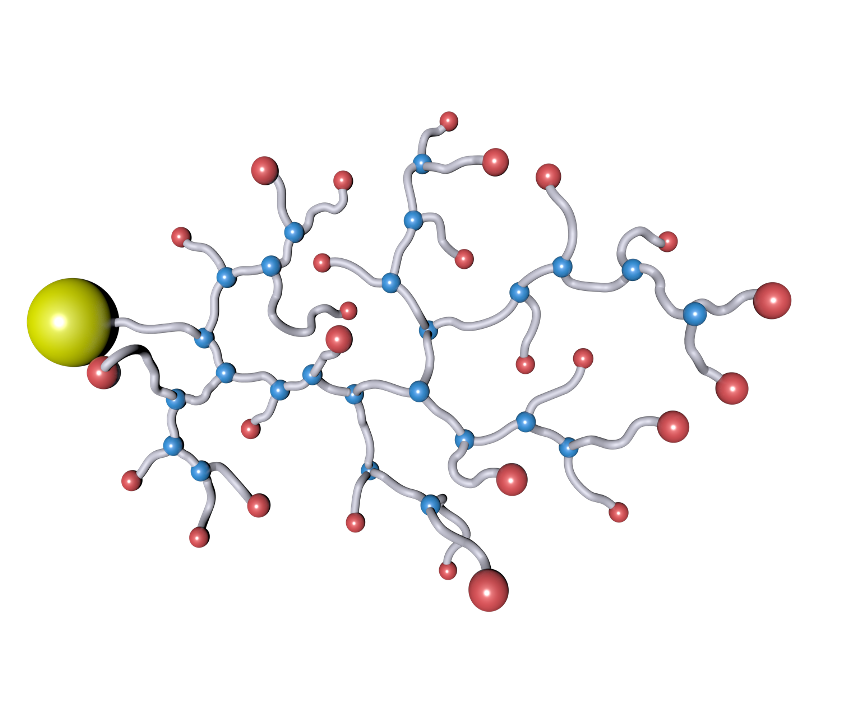Polymers in Building: Stronger, Less heavy, and More Resilient
Polymers in Building: Stronger, Less heavy, and More Resilient
Blog Article
Maximizing the Possible of Polymers: Discover the Diverse Benefits and Practical Makes Use Of
In the huge landscape of material scientific research, polymers stand out as versatile compounds that have penetrated nearly every facet of contemporary life. Their application spans different industries, from production and construction to medical care and technology. The complex benefits and sensible uses polymers proceed to develop, supplying innovative solutions to complicated challenges. By exploring how polymers can boost product toughness, drive sustainability efforts, revolutionize medical care options, and lead the way for future technical developments, we can uncover a world of possibilities waiting to be harnessed.
Relevance of Polymers in Modern Industries
Polymers play a pivotal function in modern-day industries, functioning as flexible products that drive advancement and performance throughout a wide range of industries. These complicated molecules, composed of repeated subunits, have reinvented markets such as vehicle, aerospace, electronic devices, medical care, and extra. In the auto market, polymers have actually allowed the advancement of lightweight yet resilient elements, enhancing fuel efficiency and overall performance. Aerospace industries rely on polymers for their high strength-to-weight proportion, essential for aircraft and spacecraft building. The electronics market gain from the shielding residential properties of polymers, crucial for making circuit card and digital tools (Polymers). In addition, polymers are thoroughly used in the healthcare field for medicine shipment systems, clinical devices, and biocompatible materials. Their flexibility, durability, and cost-effectiveness make polymers essential in contemporary manufacturing processes, fostering improvements and driving progression in different sectors worldwide. Embracing the possibility of polymers is key to opening additional innovations and addressing the progressing demands these days's industrial landscape.
Enhancing Product Resilience With Polymers
With an emphasis on longevity and resilience, integrating sophisticated polymer innovations right into item layout has actually ended up being a cornerstone of improving sturdiness in modern-day production procedures. Polymers provide a vast array of homes that contribute to the general toughness of items. One vital advantage is their resistance to corrosion, chemicals, and weathering, making them optimal for use in numerous sectors where exposure to severe conditions is common.
Moreover, polymers can be customized to meet details longevity demands, permitting suppliers to tailor items according to their meant use and anticipated life-span. By including polymers right into item parts, producers can enhance stamina and impact resistance, decreasing the likelihood of breakage or wear gradually.
Additionally, polymers are light-weight yet tough, offering toughness without including unnecessary weight to products. This particular is specifically beneficial in markets such as aerospace and automobile, where lightweight materials are vital for improving gas performance and general performance.
Sustainability Advancements Via Polymer Innovation
In the realm of modern-day production and product style, the ingenious application of polymers is driving substantial developments in sustainability techniques. Polymer development plays an important role in boosting sustainability by providing services that decrease environmental impact across various markets.
Moreover, improvements in polymer innovation have brought about the development of bio-based and eco-friendly polymers, stemmed from all-natural sources such as plants, that use an even more sustainable option to typical petroleum-based plastics. These environment-friendly visit homepage polymers not only help minimize reliance on nonrenewable fuel sources but also reduce greenhouse gas discharges during manufacturing. By incorporating these cutting-edge polymers right into manufacturing procedures, firms can reduce their environmental impact and move towards even more lasting methods, straightening with worldwide initiatives to battle environment adjustment and advertise a round economic situation.
Polymers in Medical Care: Revolutionizing Medical Solutions
:max_bytes(150000):strip_icc()/three-dimensional-model-of-polyvinyl-chloride-165874889-5c425ea7c9e77c000188be6d.jpg)
Among the essential areas where polymers are making significant strides remains in the advancement of targeted drug delivery systems. By encapsulating medications within polymeric nanoparticles or micelles, scientists can improve medication stability, boost bioavailability, and allow controlled launch, causing much more effective therapy programs with decreased side effects.
In addition, polymers contribute in the field of regenerative medication, where they are utilized to produce scaffolds that resemble the extracellular matrix, supplying support for cell development and tissue regrowth. This innovation holds tremendous guarantee for fixing harmed organs, advertising wound recovery, company website and progressing personalized medication approaches.
Basically, the combination of polymers in medical care is driving advancement, enhancing treatment efficiency, and ultimately improving patient end results in ways formerly thought unattainable.
Future Applications and Innovations in Polymer Technology
Progressing at the forefront of scientific exploration, polymer technology remains to lead the way for groundbreaking applications and advancements forming varied industries. In the realm of lasting product packaging, naturally degradable polymers are gaining traction as eco friendly choices to conventional plastics. These polymers damage down normally, reducing the ecological influence of single-use items. In the field of electronics, conductive polymers are changing wearable technology and flexible electronics. Their one-of-a-kind homes permit for the growth of elastic circuits and sensing units, enabling new possibilities in health care tracking and wise garments. Furthermore, polymer nanocomposites are enhancing the mechanical and thermal homes of products, bring about more powerful and lighter parts in aerospace and automotive sectors. Looking ahead, researchers are exploring the potential of shape-memory polymers for applications in robotics and biomedical gadgets, where materials that can "bear in mind" and change to their initial shapes offer interesting opportunities for innovation. As polymer innovation remains to develop, the future holds unlimited opportunities for groundbreaking developments across numerous fields.
Conclusion

Report this page